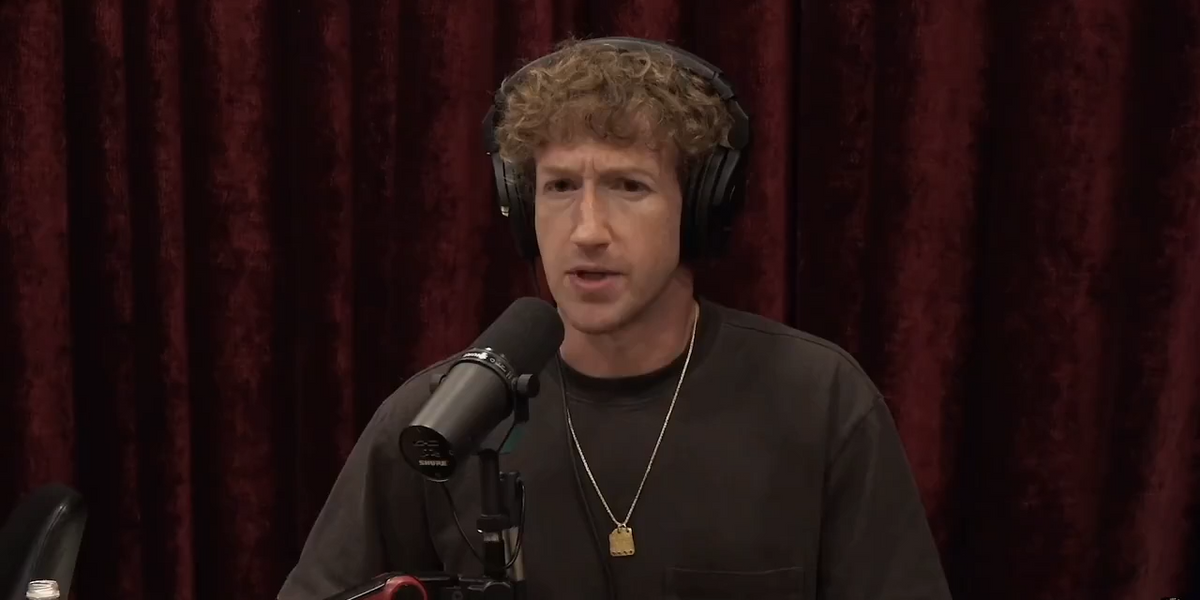In his final remarks to the American people on Wednesday night, President Joe Biden launched a parting shot at the tech “oligarchy” that he says is taking over the country.
Such arrogant and hypocritical remarks should be met with scorn by all those who languished under the program of social media censorship for the previous four years — a program largely forced on tech companies by the Biden White House, as an example of the very kind of merging of government and corporate power Biden now claims to oppose.
“Today, an oligarchy is taking shape in America of extreme wealth, power and influence that literally threatens our entire democracy, our basic rights and freedoms and a fair shot for everyone to get ahead,” said Biden.
The president did not name names, but it isn’t difficult to surmise that he was referring to Tesla and X CEO Elon Musk, Meta CEO Mark Zuckerberg, and Amazon CEO and Washington Post owner Jeff Bezos, among others.
Each of these tech billionaires has subtly — or in Musk’s case, not subtly whatsoever — broken with the Democratic Party and progressive governance. Bezos declined to let his newspaper endorse Kamala Harris for president; Zuckerberg recently fired the fact-checkers who had served as de facto enforcers of liberal groupthink on Facebook and Instagram; and Musk is a full-throated backer and key advisor for Trump.
And that is what has earned these figures spots on Biden’s enemies list.
Make no mistake: neither Biden nor the other elites within his party cared to castigate the leaders of this vital economic sector as threats to the Republic until they shrugged off Democratic control.
Having parted ways with Biden, these individuals are indicating that the next political era will be characterized not by tech oligarchy but by tech freedom.
It’s an important distinction. Thanks to the revelations published by investigative reporters like Matt Taibbi and Michael Shellenberger in the wake of Musk’s Twitter acquisition, the public now knows that content moderators’ decisions to suppress dissenting speech on a host of topics — Hunter Biden, COVID-19, and so on — were not freely arrived at by the platform itself.
Rather, incessant pestering on the part of the Federal Bureau of Investigation (FBI), Department of Homeland Security (DHS), Centers for Disease Control and Prevention (CDC), and even the White House itself, produced the censorship by proxy.
Even many liberal-minded social media moderators at first balked at government employees’ demands that they remove jokes, satire, and controversial but clearly protected speech.
Eventually, the sheer amount of pressure from federal agents, politicians, and their mainstream media mouthpieces, compelled the company to fall in line.
It was the same story at Facebook, as Zuckerberg now readily concedes.
In July 2021, Biden declared that Facebook was “killing people” because the platform was not aggressively censoring contrarian COVID-19 speech with sufficient enthusiasm. Katie Bedingfield, then White House communications director, appeared on MSNBC and suggested that Congress could take regulatory action and strip the social media giant of its liability protection unless it did more to remove content that was skeptical of mass vaccinations.
Facebook got the message: Submit to censorship, or face oblivion.
Zuckerberg now says that he regrets this submission. Some conservatives are understandably skeptical of his sudden conversion, but give him a chance; like Musk, it appears that he has learned there is no appeasing progressive Democrats who seek control over what Americans are allowed to say and to read on social media.
Ironically, this makes Biden’s Democratic Party the ultimate oligarchy: one in which the politically powerful sought the ability to suppress dissent.
That the leaders of the tech sector now reject this arrangement — and reject it utterly — is a good sign for the future of free speech in the US.
Robby Soave is a senior editor at Reason.

 By New York Post (Opinion) | Created at 2025-01-17 00:26:10 | Updated at 2025-01-17 09:53:43
9 hours ago
By New York Post (Opinion) | Created at 2025-01-17 00:26:10 | Updated at 2025-01-17 09:53:43
9 hours ago








